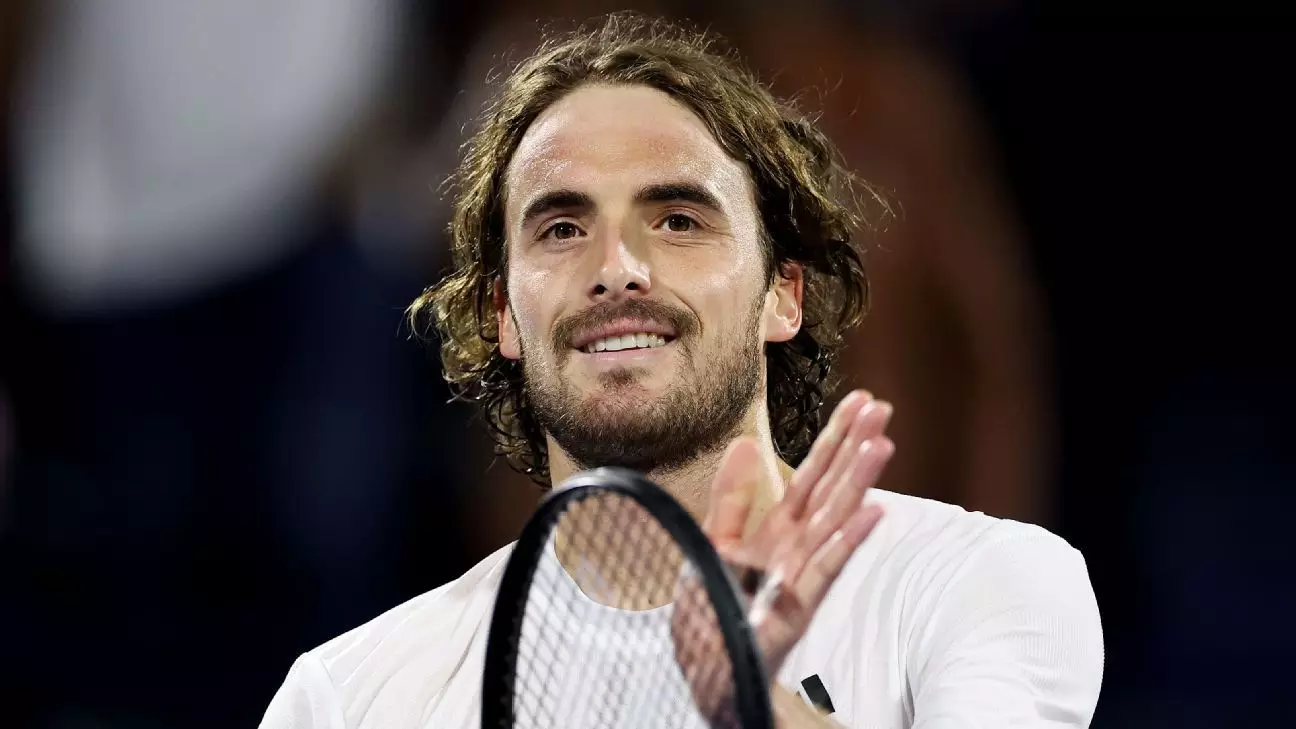In the highly competitive world of professional tennis, coaching relationships often serve as the backbone of a player’s success. However, not all partnerships withstand the test of time or the pressures of the sport. The recent decision of Stefanos Tsitsipas to rehire his father, Apostolos, as his coach after an ill-fated collaboration with Goran Ivanisevic underscores a profound truth: sometimes, the most effective catalyst for growth is a return to one’s roots. Such a move suggests that Tsitsipas recognizes where his strength truly lies—not just in external strategies, but in emotional and psychological stability fostered by familial trust.
The brief stint with Ivanisevic, despite his illustrious coaching credentials, revealed the limitations of external guidance when it conflicts with a player’s internal certainty. Ivanisevic’s blunt assessment of Tsitsipas as “unprepared” during Wimbledon was a harsh wake-up call, exposing deeper vulnerabilities that mere tactics cannot fix. Returning to his father hints at a belief that the core support system—grounded in familiarity, trust, and personal knowledge—may better serve his long-term trajectory. It also reflects a broader truth seldom acknowledged: success in tennis is as much about mental resilience and emotional grounding as it is about technical prowess.
Lessons from the Ups and Downs: Resilience in the Face of Adversity
Tsitsipas’s recent form illustrates the volatile nature of professional sports. Once primed as a rising star with a promising future, he now finds himself mired in a slump, notably dropping to 30th in the rankings and struggling to make significant progress in recent Grand Slams. These setbacks are not merely a matter of skill but are intricately tied to psychological endurance. His social media statement about “circling back to where it all began” highlights an insightful awareness: often, personal growth entails revisiting foundational principles and rediscovering one’s true motivation.
In a sport where confidence can evaporate quickly, returning to foundational support could serve as a reset button—one that helps him reconnect with his intrinsic drive. His victory earlier this year in Dubai signals that potential still exists, even if recent performances don’t yet reflect it. It’s a reminder that setbacks are not the end but part of a cyclical process of self-discovery and reinvention. Tsitsipas’s choice to lean on his father demonstrates courage—an acknowledgment that sometimes, the best strategy is to trust what has historically worked, especially when external advice has proven inadequate.
Reevaluating the Role of External Help in Personal Growth
While high-profile coach-player relationships can bring immediate benefits, they also carry risks—chief among them being misalignment in vision and approach. The short-lived partnership with Goran Ivanisevic exemplifies how even the most talented coaches cannot substitute for internal cohesion or emotional resonance. Ivanisevic’s harsh critique of Tsitsipas underscored a disconnect that perhaps could not be bridged with strategic advice alone.
By choosing to reconnect with his father, Tsitsipas is challenging the notion that success must always come from external expertise. Instead, he’s emphasizing that genuine understanding, rooted in shared history and familial bonds, can be more powerful than external strategies that lack emotional depth. This decision suggests a belief that inner stability—nurtured by loved ones—may be more critical to resurgence than external coaching labels. It’s a bold stance that advocates for prioritizing personal authenticity and emotional coherence in what is arguably one of the most psychologically taxing sports.
Looking Ahead: Confidence, Authenticity, and the Path to Revival
Ultimately, Tsitsipas’s decision hints at a core truth: sustainable success demands authenticity. His willingness to revisit his roots signifies an understanding that healing and growth often involve a reexamination of what truly matters. When an athlete acknowledges the importance of emotional support and personal belief, they unlock a more resilient mindset capable of overcoming setbacks.
His journey underscores a valuable lesson: leadership and progress are most meaningful when they align with one’s authentic self. By reuniting with his father, Tsitsipas is not just returning to a former coach but reaffirming his fundamental identity. This move may very well be the catalyst that propels him back into the upper echelons of tennis, not solely through improved technique but through renewed confidence that comes from genuine, unwavering support. The road ahead remains uncertain, but his decision to embrace familiarity over fleeting external guidance speaks volumes about where his true strength lies.


Leave a Reply